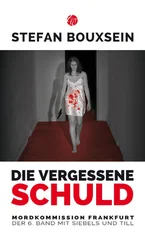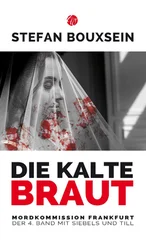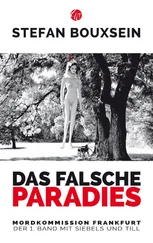Stefan Bachman - The Peculiar
Здесь есть возможность читать онлайн «Stefan Bachman - The Peculiar» весь текст электронной книги совершенно бесплатно (целиком полную версию без сокращений). В некоторых случаях можно слушать аудио, скачать через торрент в формате fb2 и присутствует краткое содержание. Жанр: Фэнтези, Детективная фантастика, на английском языке. Описание произведения, (предисловие) а так же отзывы посетителей доступны на портале библиотеки ЛибКат.
- Название:The Peculiar
- Автор:
- Жанр:
- Год:неизвестен
- ISBN:нет данных
- Рейтинг книги:5 / 5. Голосов: 1
-
Избранное:Добавить в избранное
- Отзывы:
-
Ваша оценка:
- 100
- 1
- 2
- 3
- 4
- 5
The Peculiar: краткое содержание, описание и аннотация
Предлагаем к чтению аннотацию, описание, краткое содержание или предисловие (зависит от того, что написал сам автор книги «The Peculiar»). Если вы не нашли необходимую информацию о книге — напишите в комментариях, мы постараемся отыскать её.
The Peculiar — читать онлайн бесплатно полную книгу (весь текст) целиком
Ниже представлен текст книги, разбитый по страницам. Система сохранения места последней прочитанной страницы, позволяет с удобством читать онлайн бесплатно книгу «The Peculiar», без необходимости каждый раз заново искать на чём Вы остановились. Поставьте закладку, и сможете в любой момент перейти на страницу, на которой закончили чтение.
Интервал:
Закладка:
He sped into a side street, feet jarring against the cobblestones. His chin was pointed skyward, eyes blind to everything but the metal bird high above. Someone quite literally bounced off him as he ran, and he heard that someone thump against a shop window. People began shouting after him, laughing and jeering. A rough-looking man with metal teeth grabbed his arm and spun him around. Mr. Jelliby shook him off, only to collide violently with a plump lady holding a parasol. The lady screeched. The bundle he had taken to be a muff revealed a mouth and yelped, and a shower of colorfully wrapped packages tumbled around him. He didn’t stop.
“Excuse me! I must get through! Do forgive me!” he cried, swatting a soot-blackened chimney sweep out of his way.
There it was. A glimpse of brass and clockwork, as the bird shot across the slit of sky between two roofs, and then it was gone again.
He had to get on different street. Blast it, this one was leading him in the wrong direction!
He spotted an alley, sinuous and dark, leading into a thicket of buildings, and hurled himself down it. Washing, sour with lye, lashed his face. Street children scattered shrieking before him, disappearing into various recesses like so many beetles before a broom. A fallen piece of gutter very nearly ended his chase then and there, but he leaped over it and burst out into the brightness of a wider street.
The bird! Where is the bird? He stopped, panting, whirling to scan the rooftops.
There . He was ahead of it. It was flying along the tops of the houses toward him, leisurely as could be. He dove into the cool shadow of an archway, sending a legless faery scrabbling for safety, and burst through a door. Up some stairs, down a hallway, up some more stairs that were so rickety he felt they might collapse under him at any moment. Third floor, fourth floor. . He had to get to the top of the house, find a window, and snatch the bird right out of the air. It was the only way.
The stair ended at a low crooked door, painted with now-peeling whitewash. He hammered on it, and it was shaken off its bolt. It yawned open. A pretty room lay beyond. A tiny room under a sloping roof, clean and neat, with china in the cabinet and a snowy cloth on the table. An elderly woman sat in it, bent over an embroidery hoop. She looked up languidly when he burst in, as if his intrusion were the dullest thing in the world.
“Do forgive me, madam, I’ll be along in a moment, this is most embarrassing, just one moment, may I open your window?”
He didn’t wait for her answer. In two strides he had crossed the room and was flinging the window wide. Its panes shivered in the frame as it knocked against the wall of the gable. He thrust his head out.
There was the bird. It was coming, coming up the street. In three seconds it would be past, fluttering on over the smoking city. But he could reach it. If he leaned all the way out and stretched his fingers as far as they went, the bird would fly straight into his hands.
He flailed out over the sill, over the street below. Fifty feet down, people stopped and pointed. Someone screamed. Mr. Jelliby saw the bird approaching-it looked suddenly rather frightening up close-and then. . Ow! It was strong. The wafer-thin metal of its feathers chopped at his fingers as the wings continued to flap. He jerked it toward him, throwing himself back into the old woman’s garret. The bird wrenched itself from his grasp and flew across the room, harsh and foreign in the lavender softness of the flat. It smashed against the wall, was hurled to the floor, and there it lay, skittering frantically.
Mr. Jelliby watched it, wide-eyed, his breath scraping in his throat.
“Herald?” The old woman was at his side, her hand on his sleeve. “Herald, deary, you’re very late,” she said. “It’s time for tea.”
She led Mr. Jelliby to the table. He didn’t resist. The tea things were all there, laid out and waiting-two cups, two saucers, a creamer, a sugar bowl, and a gooseberry tart, as if he had been expected all along.
And so they drank tea, side by side, watching silently as the metal bird convulsed to pieces at their feet.
When it could flap no more, it gave a pitiful mew, and its beak opened and it coughed up a drop of golden light that sputtered and spun, before winking out like a star being covered up.
“Oh.” The old lady said, setting down her cup. “It’s dead now. Herald, be a sweet and take it outside in the dustpan. I’d want it didn’t go bad on the rose-print rug.”
CHAPTER IX
Crouched on the floor of his ruined sanctuary, Bartholomew Kettle made up his mind. That night he would catch his rebel faery. He would confront the little beast and whether it be good or bad, force it to do what he had called it to do. It didn’t want to be his friend, and there was nothing he could do about that, but it thought it could play tricks on him. It thought it could break his treasures, and frighten Hettie, and Bartholomew wasn’t going to stand for that anymore. At nightfall, when it came slipping in with the shadows and the moonlight, he would be ready.
But someone else came first that evening, and Bartholomew was forced to postpone his plans. Heavy boots shuffled in the stairwell, a lantern lit the edge of the door, and Agnes Skinner from the house down the way dropped in for a cup of tea. Bartholomew and Hettie were shooed into the tiny room Bartholomew slept in, and the door was locked behind them.
Settling against the clammy wall, Bartholomew waited for the voices in the kitchen to become louder. He dreaded company. He thought it was foolish, letting people in, like letting a wolf into a room full of birds. But wolves could be interesting, too. Sometimes he would hear a fragment, or a single word, and he would think about it for days. Sometimes he wished he could sit in the kitchen, listening and drinking tea.
As long as the wolf doesn’t ask questions.
Only a few people knew of Betsy Kettle’s two children, and Agnes Skinner was one of them. Don’t get yourself noticed, and you won’t get yourself hanged. It wouldn’t take much to get noticed-a glimpse of too-white skin, or bad luck and a goose that didn’t lay. Then people would stop bidding Mother good morning in the passage. They would creep past the Kettles’ door like it was cursed. And then. .
Hettie was the worrisome one. It hurt her when Mother tried to clip the branches from her head, and nothing short of a blindfold could hide her black-glass stare. Mother had sewn her a deep green hood so that she could go into the courtyard to scratch for sand, but she was never allowed to speak to anyone, never allowed up the stairs or into the street.
It was a delicate balance Mother had to strike, and Bartholomew felt a little bit proud when he thought how well she managed it. Too open, and they would be discovered; too secret and people would start to talk, filling in all the things they didn’t know with their own ugly suspicions. So she kept a few friends, gossiped with the neighbors, and brought violets to folks when there was a death in the family. Agnes Skinner was one of her oldest friends. She was a widow and a thief, with a hard staccato voice that pried and poked into everything. She did ask about the children now and then, sometimes so pointedly Bartholomew wondered if she suspected. And every time she came he sat in the dark and worried, a little bird, and the wolf just beyond the door.
The kitchen filled with talk as the women pattered about. The kettle began to whistle, and Bartholomew smelled brewed tea leaves. He heard a cork being pulled free with a wet plop .
That would be the spirits. A tall, cut-glass bottle of blackberry cordial sat on a high shelf in the kitchen. It was a relic from the time when Bartholomew’s father still lived with them. He had gone away often, without warning, sometimes for months at a time, and then the door would open and he would be back. Sometimes he came back dirty and travel-stained, sometimes clean and polished, with lace at his cuffs. He always brought something when he returned. One time it was ribbons, one time cabbages. Once he had brought a ham and a string of pearls stuffed inside his shirt. The blackberry cordial was one of those fleeting gifts, the only one Mother hadn’t sold or traded. Bartholomew didn’t know why she kept it. Still, the only reasonable excuse to use it was for company, and so she had the habit of lacing the tea with it.
Читать дальшеИнтервал:
Закладка:
Похожие книги на «The Peculiar»
Представляем Вашему вниманию похожие книги на «The Peculiar» списком для выбора. Мы отобрали схожую по названию и смыслу литературу в надежде предоставить читателям больше вариантов отыскать новые, интересные, ещё непрочитанные произведения.
Обсуждение, отзывы о книге «The Peculiar» и просто собственные мнения читателей. Оставьте ваши комментарии, напишите, что Вы думаете о произведении, его смысле или главных героях. Укажите что конкретно понравилось, а что нет, и почему Вы так считаете.












